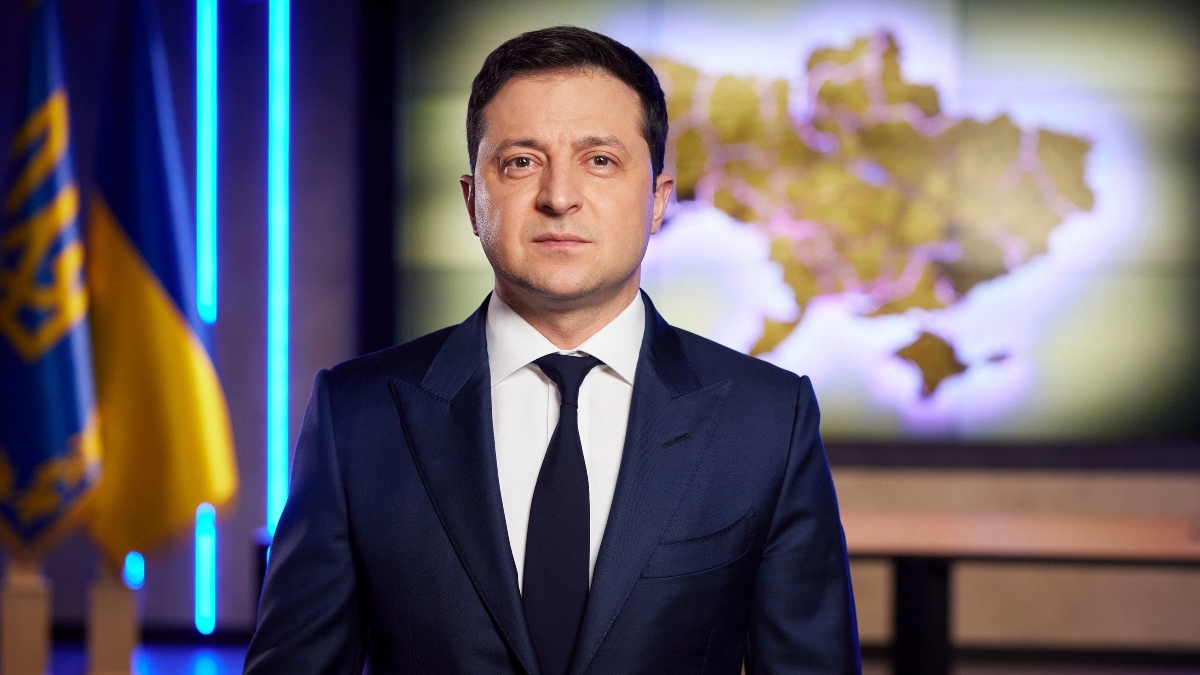


After days of regional and international summits, the world politics returns to its usual this week. This week remained steady in terms of developments and events. However, the nuke alert from China raised the eyebrows of the global leaders. The statement from the US Secretary of State, that the US has deepened its partnership with India through QUAD, opens new opportunities for both the nations to work bilaterally as well as multilaterally. Though these multilateral platforms add positivity to world politics, the last instalment of the financial aid sent by the EU to Ukraine without further extension added to the worries of Zelenskyy.
Zelensky faces economic setbacks from the EU and the US
It has been more than a year Russia and Ukraine are fighting a war where entire West (read: NATO led by the US) is involved. More than a war between Putin and Zelenskyy, this war seems to be going on between the NATO led by the US and Putin. We must not forget what Russia-Ukraine war brought to this world this year, thousands of civilians’ casualties and military casualties, displacement of people, food crisis, energy crisis, economic issues, extensive environmental damage, intensification of lobby politics in global affairs and more. Zelenskyy must have realised by now the brunt and cost of this war. Why he is adamant not to stop the war remains a relevant question. The European Union (EU) sent 1.5 billion euros throughout the year to help Ukraine reconstruct its critical infrastructure, maintain essential services and pay salaries. This week, the EU sent the final instalment of this support package to Ukraine to help keep its war-scarred economy alive. To extend this support, the European Commission proposed a plan to help Ukraine with a further financial aid of 50 billion euros. On 14 and 15 December, the European Council had a summit in Brussels to discuss Russia-Ukraine war, Middle East, enlargement and reforms, security and defence, migration, EU-Türkiye relations and so on. Though all other leaders of the member nations approved the plan for Ukraine, Hungary imposed its veto. The decision came as a major setback for Zelenskyy after the US also stepped down to provide additional economic aid to Ukraine recently. It is a wake-up call for him to understand wars are not fought on charity. ‘To be or not to be’ should be the question for Zelenskyy and I hope that he opens the doors for diplomatic talks to end the war may be in the new year.
India-US ties deepened through QUAD
India understands the power of diplomatic engagements. The new chapter of strategic partnership between India and the US, under the leadership of Indian PM, reflects hope and development. India is not only bilaterally engaged with the US; it is also strengthening its involvement and engagement through multilateral platforms like QUAD. This week, the US Secretary of State, Blinken, stated that the US has deepened its partnership with India through QUAD. He further stated that US’ partnerships in the Indo-Pacific region have never been stronger and the US will continue to engage with China from a position of strength. Indeed, India and the US not only achieved new milestones in their journey of a fruitful strategic partnership, both the nations involved other likeminded nations like South Korea and Japan to ensure neutrality and stability of Indo-Pacific region. The US would be sharing technology with India to make fighter jet engines and armed drones, which is a pathbreaking sign in the defence partnership between the two nations. Both the nations are already working to share technology and other real-time sensitive information under the agreements Logistics Exchange Memorandum of Agreement (LEMOA), signed in 2016, COMCASA (Communications Compatibility and Security Agreement) signed in 2018, and BECA (Basic Exchange and Cooperation Agreement) signed in 2020. These agreements enable sharing of sophisticated military technology, logistics and geospatial maps between the two nations. QUAD has played a pivotal role in this partnership and has elevated the same to the quadrilateral level. China’s increasingly aggressive behaviour in the region has put nations and various platforms on alert; and new bilateral and multilateral defence cooperation pacts can be seen.
Nuke Alert from China
While the nations in the Indo-Pacific region are uniting against any hegemony in the region, China is busy in elevating its nuclear capabilities. This week, the news reports reveal that China is rebuilding a secretive base for conducting nuclear tests. Satellite pictures have revealed that China has recently drilled a deep vertical shaft in the remote desert where it tested its first atomic bomb nearly 60 years ago. Experts are speculating that China has developed highly sophisticated and a new generation of nuclear arms, and it all set to test them. This poses a new threat to the global peace and security.
Wars only bring destruction. Everyone knows this. But then why wars? Dialogue and diplomacy can resolve even the most critical and complex matters. We do not need war; we need more dialogue. When will the leaders realise this, remains a pertinent question.